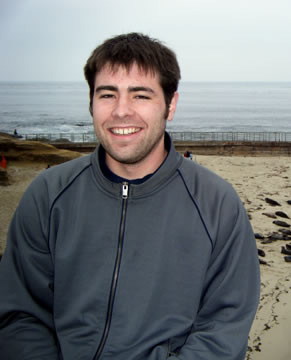In keeping with the times, President Obama has had to treat his faith like an open book, as a candidate and as president. One example comes from an ABC News story earlier this year about his church attendance. Reporter Devin Dwyer wrote the following: “If church attendance is one measure of a man’s faith, then President Obama may appear to have lost some of his. The first family, once regular churchgoers, has publicly attended services in Washington just three times in the past year, by ABC News’ count, even bypassing the pews on Christmas Day.”
Judged by the premises that church and state should be separate, and that the president’s religious views should be a fundamentally private matter — disregarded in evaluations of his job or policies (unless, perhaps, it’s evident he is being influenced by dogma as opposed to careful, reasonable thinking) — attention to the quantity and quality of his worship is misguided.
Unnecessary distraction is certainly harmful for a democracy plagued by so many issues more serious than how or whether a president worships. The focus on Obama’s faith represents an all-too-comfortable acceptance of religion in politics. Inherent in reporting on his church attendance is the notion that worship is important. Few mainstream voices question the value of inquiring about his faith in the first place.
Religious thinking is, in many ways, antithetical and detrimental to democracy. I am not arguing that religion is wrong in any higher sense, and I am certainly not advocating that one must be an atheist to be an effective or democratic politician or citizen. I strongly believe in the right to worship and practice any faith that one chooses.
The underlying logic that supports the First Amendment is instructive for understanding the fundamental dangers of religion in government. Essentially, it concerns the importance of protecting a multiplicity of ideas. Put simply, if citizens are not free to debate and challenge each other, then ideas will not progress (because they have not been tested), and our society will stagnate. Democracy is in part designed so citizens can live meaningful lives and govern themselves effectively. The former could not be done humanely without the freedom to express, and the latter could not be achieved without a vigorous exchange of ideas among citizens.
It is at this point — the commitment to a vigorous exchange of ideas — that democracy and religion part ways. Religion is fundamentally dogmatic, and as such provides its practitioners with a predetermined solution for every problem. Christians, Jews, Muslims and others have each endorsed a comprehensive worldview, and this worldview provides answers to what is right and wrong, moral and immoral, just and unjust.
In religion, as with any dogma, there is always in operation a higher certainty or truth. That is the fundamental commitment of religion — to provide a comprehensive worldview. Democracy can be thought of as an affirmation of principles opposite of that. Democracy is committed to the enactment and appraisal of public policy based on the best information available and the most reasonable outcome available in a given circumstance. There is no higher truth in democracy as there is in religion.
If there were any democratic “higher truth,” it would be uncertainty. In democracy, there is never a pure consensus, and there never should be. Simply put, dogmatic thinking is antithetical to a pluralistic democratic society.
Religious thinking prevents the careful analysis of available data and arguments and instead affirms the importance of tradition as a sort of rational “higher truth.” Nowhere is this more evident than in debates about gay marriage, where arguments opposing its legalization are rooted in, and appeal to, a “tradition” that is religious in its genesis and its reasoning.
 A prime example was the Proposition 8 debate in California. In essence, citizens argued that tradition should supersede the legal interpretation provided by the courts. I do not question the rights of a state to overturn a decision through direct vote, but analysis of the arguments demonstrates a split between “civil rights” and “tradition.” Civil rights, a legal concept, requires a careful analysis of multiple arguments, studies, legal theories, etc.
A prime example was the Proposition 8 debate in California. In essence, citizens argued that tradition should supersede the legal interpretation provided by the courts. I do not question the rights of a state to overturn a decision through direct vote, but analysis of the arguments demonstrates a split between “civil rights” and “tradition.” Civil rights, a legal concept, requires a careful analysis of multiple arguments, studies, legal theories, etc.
Religious tradition is an argument rooted in a desire to continue to conform to a dogmatic belief system. Religion and its line of “reasoning” about gay marriage has been codified into law, and the result is a less democratic society, both in terms of the quality of decision making and the legal commitments to the equality of its citizens.
Religious thinking corrupts democratic decision-making. The result is a society that is less free and less democratic. As citizens, we must remain vigilant in keeping the public aware of the corrupting influence of religion in politics, and we must continually redraw the line between the two.
Otherwise, we are not democratic at all.
Jeff St.Onge, 28, is a Rhode Island native and doctoral student at Indiana University in Bloomington. He is studying rhetoric and public culture with the goal of teaching.
This is an excerpt from his honorable mention essay. He received a $250 scholarship from FFRF.

